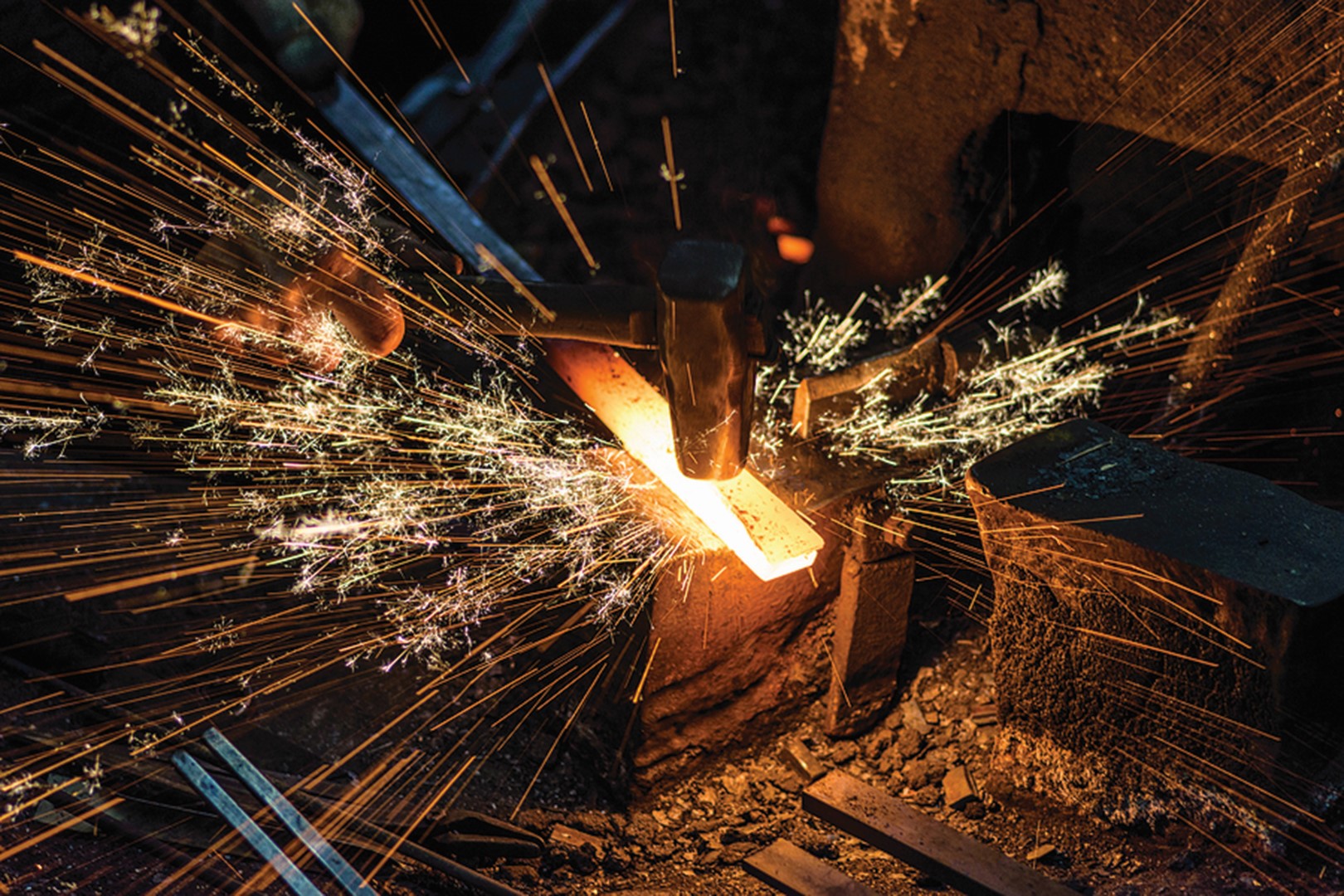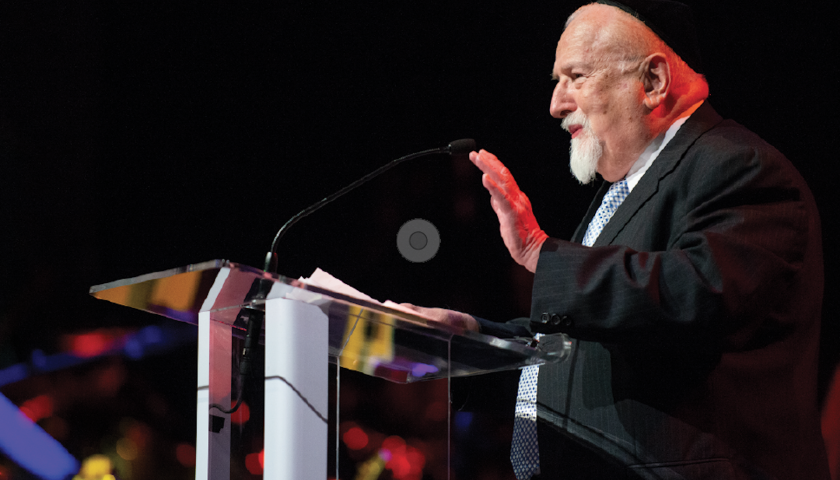The vaccine of our great suffering
By: Rabbi Dovid Samuels
The night of the seder is designed to instil in us, and all of those participating at the seder, belief and faithfulness to the truth that Hashem is completely in control of every aspect of our lives, both on a national and individual basis. Even the matzah is referred to as the bread of emunah – faithfulness. As with every mitzvah, the more we prepare ourselves beforehand, the more effect it will have on us when we fulfil it. But, on this holy night, when we retell the story and sing songs of our miraculous exodus from Egypt, there is one very bothersome question that nags us: why are we thanking Hashem for removing us from a painful situation when He was the one who put us there in the first place?ashem GHH
When Yosef was sold into Egypt, he was confronted with unbelievable tests of morality. He didn’t choose to be there, but was taken there through Divine providence. So too his brothers were forced into Egypt, not of their own volition, but because of the famine. The roots of the Jewish people were planted in a land that was steeped in denial of G-d and rampant immorality, but it was no choice of our own. Wouldn’t it have been better if we had never set foot on such impure soil in the first place?
The Chasam Sofer deals with this issue and uses the Haggadah itself to answer: “In the beginning, our fathers were idol worshippers” – this due to the relentless influence of the G-dless society around us. But why did it have to be so? The answer is: “But now Hashem brought us close to His service” – specifically through the tremendous lows and tribulations we faced in Egypt, that’s how we were able to become close to Hashem through His service. The reason for this is that if a person is to truly appreciate an answer, he has to first have a question. Similarly, if a person is going to truly believe something, there has to first be a point of disbelief. If Hashem had come to us in a pleasant land at a peaceful time and revealed Himself to us through the awesome miracles that happened at the exodus, it would have surely been a sight to behold, but it would not have made an everlasting impression on us and our descendants. The reason being: we never doubted the power, presence, and awesomeness of Hashem in the first place.
In Egypt, however, a land where G-d was never mentioned, where the leader denied knowledge of the Creator, where the Jews were mercilessly enslaved and beaten and prevented from even having the time to think about their Father in Heaven, the doorways of doubt started to open up. Is Hashem really here? Is He still watching over me? Is He still listening to my prayers? And while the first generation might be able to pull through with their faith intact, the children and the grandchildren, who never knew life outside of the concentration camps of Egypt, would certainly have had a harder time remaining steadfast and true to the faith of their parents and grandparents.
Slowly, the Jewish people hit rock bottom; doubt began to set in, their belief waned, their behaviour deteriorated, and the influence from the G-dless society around them overpowered them. “Our fathers were idol worshippers.” We were almost broken, but that desperation opened inside of us not just the knowledge that Hashem is with us, but, more importantly, the need to know that Hashem is with us. Like a piece of steel, forged in fire, brought to the point of brittleness; almost completely broken. Then, it is quickly pulled from the forge and slipped into the quench. As the steel particles almost lose their hold on one another, there is a radical drop in temperature in the quench which deeply solidifies the steel, making it even harder and stronger than it was at the beginning.
The question of “why are you ruining the piece of steel” is immediately answered when you feel just how strong it becomes after the quench. Mitzrayim is referred to as the Kur Habarzel – our forge. It softened us up and opened our hearts and minds to the point where we were desperate for an answer to the question: “Where are You, Hashem?” At that point, when we were completely open to knowing G-d with every fibre of our being and every space in our heart, Hashem removed us from the forge and quenched us. We were brought back to life, with faith in Hashem becoming the binder in every part of our existence. We were stronger than before; strong enough to survive everything else.
By telling the story of the Exodus from Egypt, we have to focus on the darkness in which the Jews found themselves when they were there. We have to recall the immorality of the Egyptians, we have to visualise the suffering of our brothers, we have to imagine the immense pressure that the G-dless Egyptian society put upon us and our children living there. When we realise that we were truly in a forge of fire, that nothing else could compare to our fragility at that moment, and that Hashem saved us from it all, then the Haggadah can quench us. The strength garnered from this mitzvah is something that will allow us, as Jews, to survive any event in our history and any challenge in our lives, remaining faithful to our service of Hashem. “But now Hashem brought us close to His service” – forever.
A story is told about a man who lost his father to the Corona virus. The deceased man’s mother was still alive, but she was very old, and the family was unsure whether to tell her about the passing of her son. In the end, they couldn’t keep the news from her, but they hinted it to her in a very indirect way, out of fear for her health upon hearing about the tragedy. The woman, upon understanding what had happened, asked her grandchildren why they were so scared to tell her the news. “You have nothing to be afraid of, telling me this. As upsetting as it is, I am able to handle it, because I have seen G-d face-to-face. I was in the Holocaust, and I lost my mother, my father, my brothers, and my sisters, but Hashem never forsook me. He was with me every step of the way and He helped me build a house of splendour; a family with children and grandchildren who walk in His ways.”
This woman had seen real darkness, and she had been exposed to the magnificent light that arrived afterwards. From then on, nothing could dim the light of faith and faithfulness that had been there after the forge. But if we, as a nation, had never experienced the hardships of Egypt, we would not have become quenched and hardened in our emunah. Likewise, if we don’t utilise the opportunity of Pesach to retell and relive the pain of the Egyptian slavery and the climactic exodus, we will remain soft and brittle to the hardships which we may encounter in our lives.
Who was told first that we would be going into the prison of Mitzrayim? Avraham Avinu was foretold of this event at the Covenant Between the Parts. As a reward for Avraham’s faith and dedication to Hashem – after all, he was willing to be thrown into a furnace at Ur Kasdim for his belief in G-d – he was informed of his descendants’ slavery in Egypt. How do we find the fairness in such a thing? Surely Avraham deserved a finer reward for his tremendous sacrifices for his belief in Hashem?! But once we understand what we gained from being slaves in Egypt, then we understand that, just as Avraham had solidified his Emunah through the furnace of Ur Kasdim, Hashem promised him that his descendants would be given the same opportunity. Hardship, no doubt, the likes of which would almost break them. But not quite. Instead, it would serve as the furnace which would instil emunah so deep into the fabric of the Jewish people that they could tap into that reserve and transcend any future difficulty they might experience. Once we left Mitzrayim, no darkness would be too much to bear. On the contrary, any darkness, any life challenge, would simply become an opportunity to reveal more light.
In light of the current world pandemic, we see very clearly how the darkness itself can be the prelude to a great illumination. With the effects of the Corona pandemic wreaking havoc on the world, all of the countries are scrambling to procure and dispense vaccines. Millions of doses of vaccines are being sent around the world – developed and distributed at record speeds. But what is the vaccine made of? Ironically, the vaccine is made of the virus itself. Either an antigen or a blueprint of the antigen is given to the body, weakened enough that the body will not suffer because of it, but strong enough that the body is forced to defend itself against it. Once the body has responded to this weakened form of the virus, it has effectively built up a defence against the virus in its stronger form. The body has experienced this enemy, and now knows how to beat it.
Our experience in Mitzrayim was our individual and national exposure to a very severe pathogen. With idolatry and immorality pervading our lives at every turn, it was a spiritual and physical holocaust. But we survived, and with our survival we received antibodies that would allow us to fight off any impurity that would come our way. Every year at Pesach, we get a booster – a shot of vaccine to maintain our ability to survive and even thrive through the difficulties we may face; be they physical or spiritual ones. We eat the bread of faith, we taste the bitterness of our suffering, and we raise the cups of our salvation. We are brought close to the service of Hashem because we were searching for it; because we were desperate for it. And it is in His service that we can be free, forever.




